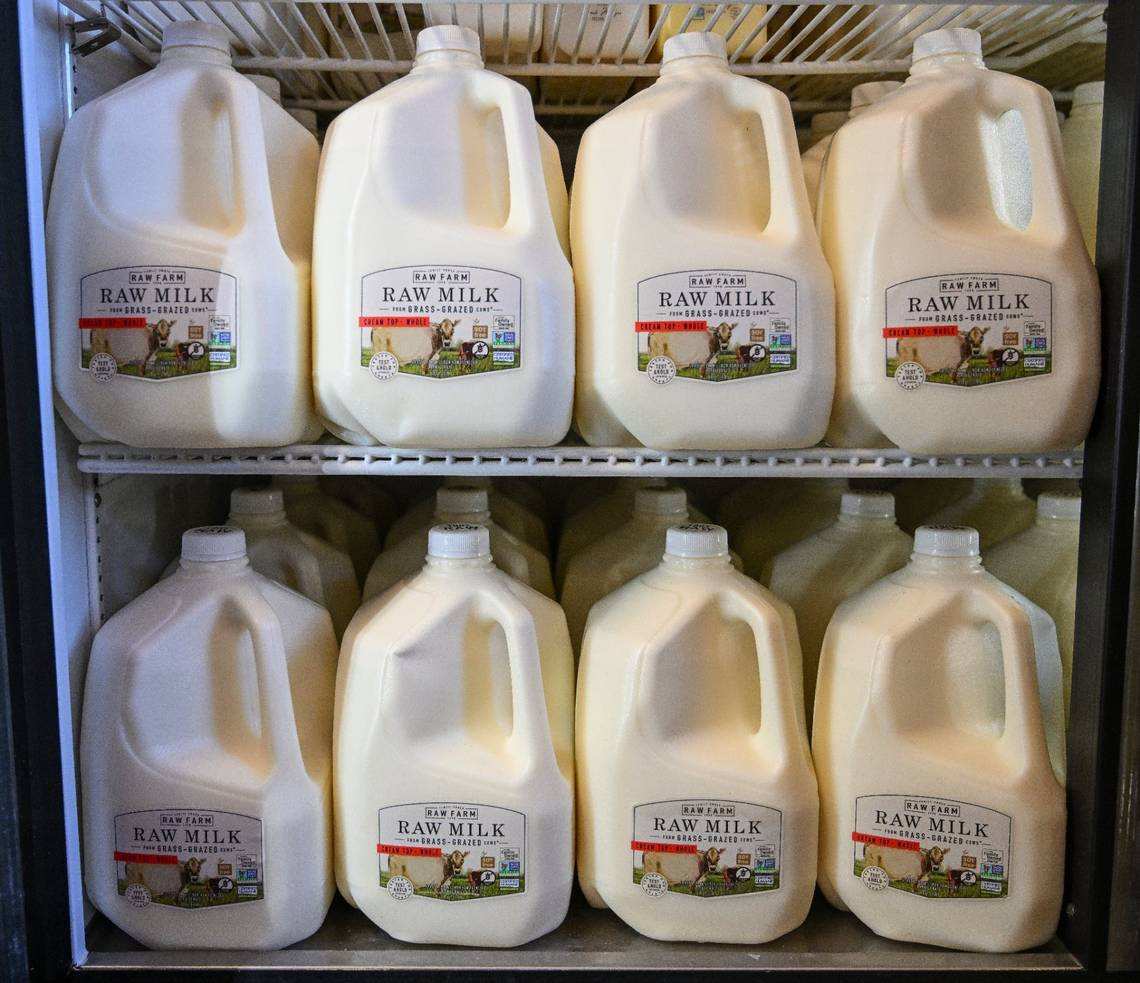H5N1 Threat Sparks National Milk Testing
In response to H5N1 outbreaks, significant actions are underway affecting dairy operations nationwide. The crisis poses a pressing concern for the agriculture and health sectors.
Published December 07, 2024 - 00:12am

Image recovered from americanmilitarynews.com
In recent months, the H5N1 bird flu virus has emerged as a formidable threat to the dairy industry across the United States. State and federal officials have implemented widespread measures to contain its spread, underscoring the urgency of the situation. As the H5N1 virus races through California's dairy herds, the U.S. Department of Agriculture (USDA) has initiated a mandatory national testing program for raw milk.
California has taken immediate action by halting the sales of raw milk from Raw Farm, a major producer, after positive tests for the virus in both retail and bottling sites. With the potential for the virus to jump to humans, the California Department of Public Health has issued stern warnings against the consumption of contaminated raw milk.
The wider threat of H5N1 necessitates a comprehensive response at the national level. The USDA's new testing framework, to begin on December 16, is initially targeting dairy operations in six states: California, Colorado, Michigan, Mississippi, Oregon, and Pennsylvania. Testing will expand to other states as data becomes available. The program's goals include providing greater confidence to farmers and farmworkers in their ability to safeguard their herds while striving to control and prevent further spread of the virus.
The United States has seen more than 720 dairy herds in 15 states test positive for H5N1 since the outbreak was first identified in March 2024. Despite pasteurization effectively neutralizing the virus, the testing focuses on raw milk where the virus is concentrated and capable of persisting for several weeks under refrigeration. Scientists and public health officials warn against the consumption of raw milk due to these risks.
Further underscoring the virus's danger, research shows that it can significantly impact farm animals and humans. With some 58 human cases reported in 2024, mostly among farmworkers, the potential for widespread transmission remains a critical concern for health experts.
The testing program serves a dual purpose, not only in detecting virus presence but also assisting scientific and veterinary efforts to map the virus's path across the nation's dairy infrastructure. Despite its urgency, public disclosure of the testing results remains under review by the USDA, raising questions about information transparency and its role in public safety.
A study from Scripps Research highlights the potential for the virus to mutate, raising alarms about the risk of human-to-human transmission. This further emphasizes the necessity of rigorous testing protocols and containment strategies.
Aligning with these federal measures, states are enacting their own epidemiological controls to combat the spread. In Michigan, which historically mandated milk pasteurization, there is now a leading-edge strategy to align with national testing protocols, aiming to remain secure amid growing numbers of infected herds.
The USDA's directive demands cooperation across the milk supply chain, stipulating that dairy producers comply with sample requests. Positive cases trigger regimented tracing protocols to pinpoint and curb the virus's reach. Through this comprehensive approach, officials aim to safeguard the health of bovine and human populations alike.
The bird flu's encroachment into dairy operations presents a volatile health challenge with immediate and wide-reaching implications. Through collective measures, the USDA and individual states are tasked with leveraging cutting-edge science and stringent biosecurity practices to contain this significant outbreak.







